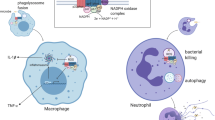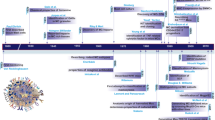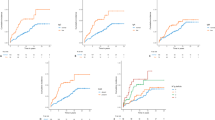Summary
Bacterial infections still pose a threat to intensive care patients. The progression of an infection once contracted often leads to severe sepsis with subsequent organ failure and death. Despite better understanding of the pathophysiological course, the hyperinflammatory reaction cannot be retained. Granulocyte colony-stimulating factor (G-CSF) regulates the multiplication and differentiation of neutrophil precursors and modulates neutrophil function. Since 1987, recombinant human G-CSF (r-metHuG-CSF) has been approved for the treatment of chemotherapy-induced neutropenia, all forms of congenital neutropenia, as well as for the mobilization of progenitor cells for peripheral progenitor cell transplantation. Since G-CSF modulates the function of neutrophil granulocytes and since its endogenous production is induced by bacterial infection, it has been assumed to have an important role in bacterial infections. In animal models of infections it has been shown that rhG-CSF could significantly increase the survival rates and reduced the endogenous production of TNF-α. In healthy volunteers G-CSF improves the granulocyte function and has an anti-inflammatory effect on the cytokine network. First clinical studies in patients with infections (pneumonia) as well as surgical intensive care patients have shown that the administration of G-CSF is safe and that it might have a beneficial effect on the clinical course.
Zusammenfassung
Bakterielle Infektionen und Infektionskomplikationen stellen für den Intensivpatienten nach wie vor eine Bedrohung dar. Trotz verbesserter Einsicht in die pathophysiologischen Abläufe konnte gerade die unkontrollierte und überschießende Entzündungsreaktion bisher therapeutisch nicht eingedämmt werden. Einen erfolgversprechenden Ansatz verfolgt der Granulozyten Kolonien-stimulierende Faktor (G-CSF), ein hämatopoetischer Wachstumsfaktor, der die Mobilisierung, Teilung und Differenzierung von myeloischen Vorläuferzellen zu neutrophilen Granulozyten positiv reguliert. Seit 1987 wird die rekombinante Form des humanen G-CSF klinisch mit Erfolg für die Behandlung der Chemotherapie-assoziierten Neutropenie, allen angeborenen Formen der Neutropenie sowie auch zur Mobilisierung von Vorläuferzellen für die periphere Progenitorzelltransplantation, eingesetzt. Da G-CSF auch Funktionsstörungen des neutrophilen Granulozyten behebt und darüber hinaus endogen bei bakteriellen Infektionen produziert wird, wird diesem Wachstumsfaktor eine wichtige Funktion bei bakteriellen Infektionen zugesprochen. In tierexperimentellen Infektions-Modellen konnte rhG-CSF das Überleben der Tiere signifikant steigern und reduzierte dabei die Produktion des Tumornekrose-Faktor-α. Bei gesunden Normalspendern zeigt rhG-CSF neben einer Steigerung der Granulozytenaktivität eine Hemmung proinflammatorischer Zytokine. Erste Studien bei Patienten mit Infektionen (Pneumonie) und bei chirurgischen Intensivpatienten haben gezeigt, daß die Therapie mit rhG-CSF keine zusätzlichen Komplikationen auslöst und möglicherweise den klinischen Verlauf positiv beeinflussen kann.
Similar content being viewed by others
Author information
Authors and Affiliations
Additional information
Eingegangen: 14. Oktober 1996 Akzeptiert: 6. Januar 1997
Rights and permissions
About this article
Cite this article
Gross-Weege, W., Schneider, E. & Röher, HD. Die Rolle des Granulozyten Kolonien-stimulierenden Faktor (G-CSF) bei bakteriellen Infektionen. Intensivmed 34, 664–674 (1997). https://doi.org/10.1007/s003900050090
Issue Date:
DOI: https://doi.org/10.1007/s003900050090




